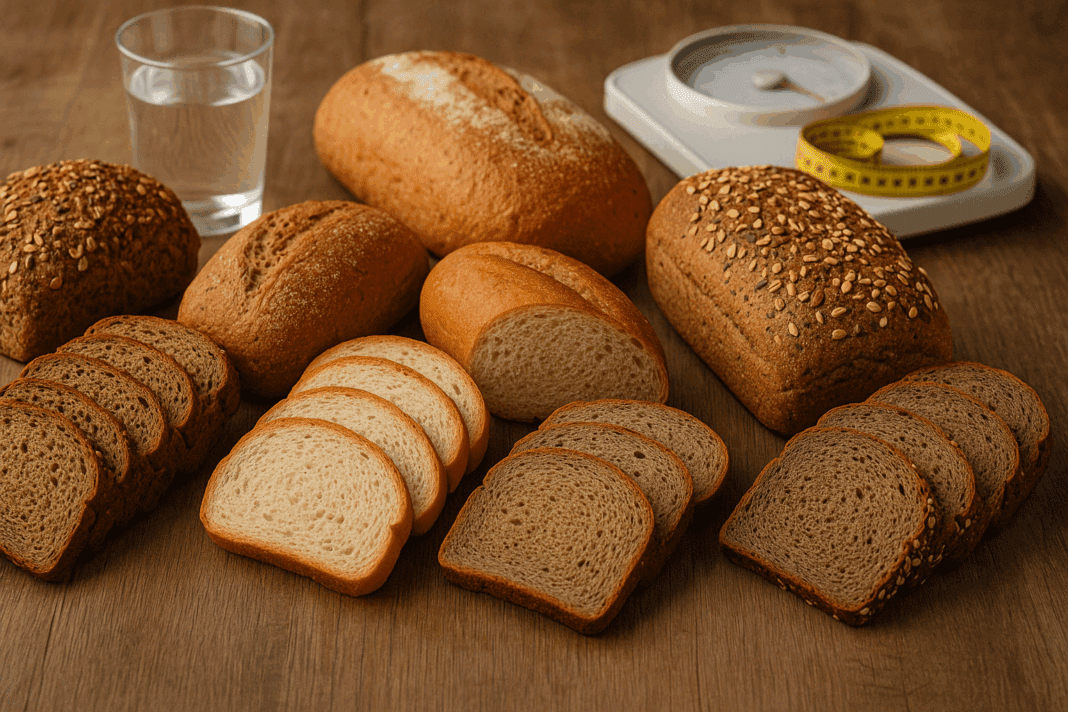Rethinking Bread and Fat Loss: Why This Debate Still Matters
Few foods are as beloved and controversial as bread. From the crusty loaves of artisan bakeries to supermarket sandwich slices, bread is a global staple. But for individuals striving to shed fat and improve body composition, the question frequently arises: is bread bad when losing fat? This query has inspired endless diet plans, media headlines, and nutritional debates. To understand the role of bread in weight management, we need to move beyond black-and-white thinking and examine what the science really says.
The rise of low-carb and ketogenic diets has fueled the belief that carbohydrates, especially those found in bread, are inherently fattening. Yet many cultures with bread-rich diets—such as the Mediterranean—boast lower obesity rates and better metabolic health outcomes. This suggests that context matters. Whether bread helps or hinders fat loss may depend more on its type, quantity, and the overall quality of the diet than on bread itself.
Moreover, the assumption that bread makes people fat is often based on oversimplified views of calorie intake and carbohydrate metabolism. Weight loss involves complex physiological, behavioral, and lifestyle variables that can’t be reduced to single food choices. So, when we ask, “Does bread make you fat?” the answer isn’t as straightforward as it may seem.
You may also like: How a Whole Foods Diet Supports Sustainable Weight Loss: Expert Tips for Eating Whole Foods to Lose Weight Safely
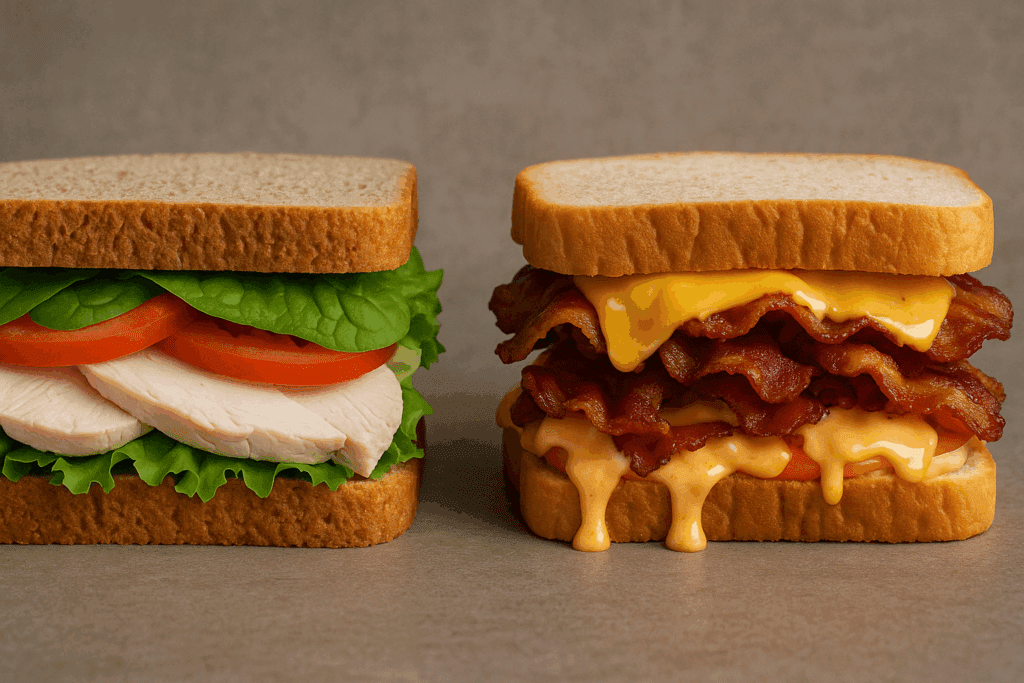
Bread and Calories: Understanding Energy Balance
To lose fat, the body must operate at a calorie deficit—burning more calories than it consumes. This fundamental principle of energy balance is at the heart of every sustainable weight loss strategy. Bread, like any food, contributes to overall caloric intake. The issue arises when bread is consumed in excessive quantities or paired with calorie-dense accompaniments like butter, cheese, or processed meats.
Still, bread alone is not the enemy. A slice of whole grain bread contains roughly 70–90 calories, depending on the brand and thickness. In contrast, a tablespoon of peanut butter adds about 100 calories, and cheese can easily push a sandwich into a calorie surplus. This nuance is key when addressing whether bread and fat loss are incompatible goals.
Much of the confusion stems from conflating bread with refined, highly processed versions that lack fiber and spike blood sugar. When asking, “Will bread make you fat?” it’s important to consider the type of bread being eaten. Refined white bread may contribute to weight gain if consumed frequently and in large amounts, especially if it displaces more nutrient-dense options. On the other hand, wholemeal and whole grain varieties offer fiber and micronutrients that can support satiety and metabolic health.
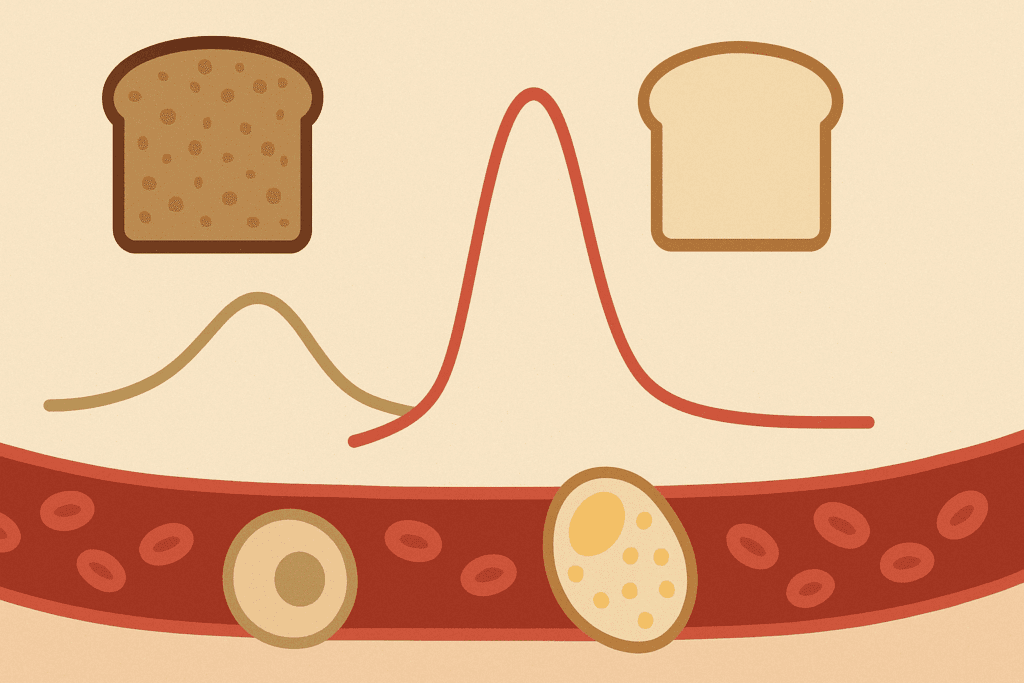
What the Science Says: Bread, Insulin, and Fat Storage
A popular argument against bread in fat loss plans is that it “spikes insulin,” which supposedly leads to fat storage. This idea has been widely circulated but often oversimplified. While it’s true that carbohydrate-rich foods can raise insulin levels, this is a normal physiological response. Insulin helps shuttle nutrients into cells and regulate blood sugar. Elevations in insulin alone do not cause fat gain unless they occur in the context of chronic calorie surplus.
When assessing the impact of bread on fat metabolism, it’s helpful to differentiate between refined and whole grain products. Whole grains digest more slowly and lead to a more gradual insulin response. This reduces hunger and lowers the risk of overeating later in the day. Studies consistently show that diets rich in whole grains are associated with lower body fat percentages and reduced waist circumference.
So, while the idea that “does bread make you fat” may stem from concerns about insulin, this interpretation is misleading without context. Insulin is not inherently fattening. It’s how foods are consumed—how often, in what amounts, and with what other nutrients—that determines their effect on body weight.
The Role of Bread in Balanced Diets
Mindful eating encourages a broader view of nutrition that includes emotional satisfaction, food variety, and dietary sustainability. Bread can easily fit into this framework. When incorporated thoughtfully, it can provide carbohydrates for energy, dietary fiber for gut health, and essential B vitamins for metabolism.
For individuals practicing portion control and emphasizing whole-food options, bread for weight loss isn’t only possible—it can be beneficial. Whole wheat and whole grain breads, in particular, offer more nutritional value than their white counterparts. They’re higher in fiber, which slows digestion, increases satiety, and helps regulate appetite. This can make it easier to maintain a calorie deficit without feeling deprived.
One of the key insights in nutritional psychology is that labeling certain foods as “bad” often backfires, leading to cravings and disordered eating. Reframing the conversation from “Is bread bad when losing fat?” to “How can I incorporate bread mindfully into my fat loss plan?” opens the door to more sustainable, healthier habits.
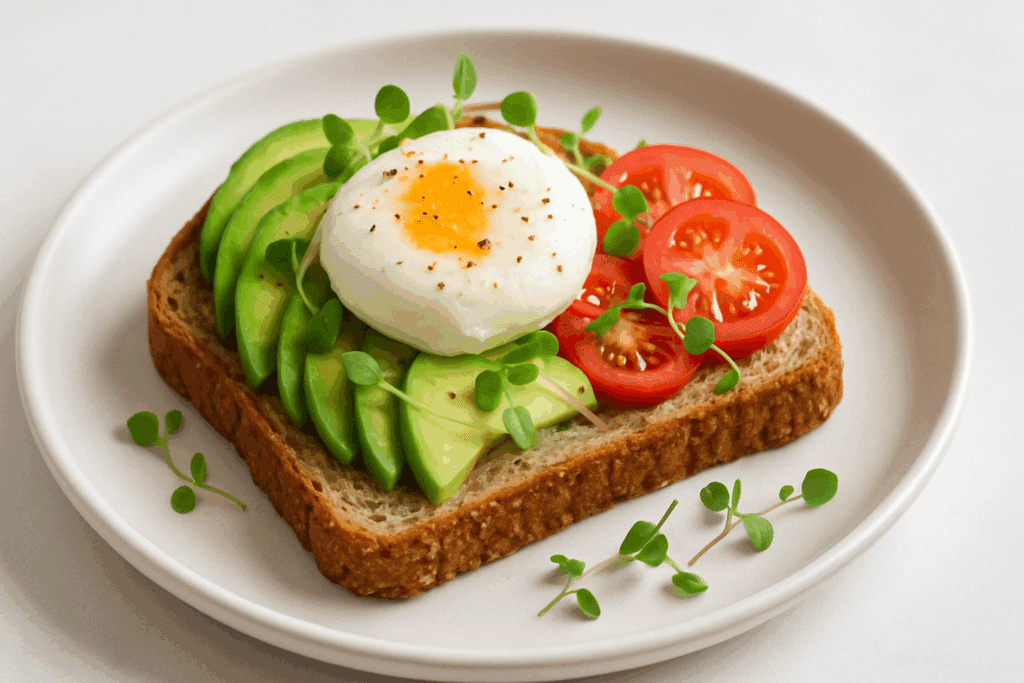
Is Whole meal Bread Good for Weight Loss?
Wholemeal bread, often made from 100% whole wheat flour, retains the bran and germ of the grain, which house most of the fiber, vitamins, and minerals. This makes it a smarter choice for fat loss than refined white bread, which is stripped of these valuable components during processing.
So, is wholemeal bread good for weight loss? Scientific research suggests yes, when consumed in moderation as part of a calorie-conscious diet. The fiber content in wholemeal bread slows glucose absorption, enhances fullness, and may improve insulin sensitivity—all of which can support fat loss. Additionally, wholemeal bread tends to have a lower glycemic index, meaning it has less impact on blood sugar levels compared to white bread.
Unlike trendy low-carb diets that exclude bread altogether, many evidence-based fat loss plans—including the DASH and Mediterranean diets—allow for moderate intake of wholemeal or whole grain bread. This suggests that bread and fat loss are not mutually exclusive. Instead, they can coexist when choices are intentional and informed.

Does Meat and Bread Make You Fat, or Just Sitting?
A common myth in nutrition is the idea that combining certain foods—such as meat and bread—automatically leads to weight gain. The question, “Does meat and bread make you fat or just sitting?” is rooted in concerns about food synergy and lifestyle patterns.
From a scientific standpoint, there’s nothing inherently fattening about combining meat and bread. In fact, many classic meals—such as lean turkey sandwiches on whole wheat bread—are both satisfying and nutritious. The problem arises when these meals are composed of processed meats, refined bread, and excess fats, resulting in a high-calorie, low-nutrient profile.
The second part of the question—“or just sitting?”—is equally important. Sedentary behavior is a well-documented risk factor for weight gain and poor metabolic health. Even the healthiest meal can contribute to fat storage if it’s part of a lifestyle that lacks physical activity. Conversely, an active individual can include both meat and bread in their diet without adverse effects on body composition.
In short, context matters. It’s not meat and bread that inherently cause fat gain—it’s the combination of high-calorie intake, sedentary habits, and poor food quality. Recognizing this distinction helps people make smarter choices without unnecessary restriction.
Whole Grain and Whole Wheat Breads: Better Choices for Fat Loss?
With growing awareness around nutrition, consumers are increasingly asking whether specific types of bread are better suited for weight management. Questions like “Is whole grain bread good for weight loss?” or “Is whole wheat bread good for losing weight?” are common—and fortunately, backed by science.
Whole grain bread includes all parts of the grain kernel: the bran, germ, and endosperm. This preservation of the grain’s integrity offers more fiber, antioxidants, and micronutrients than refined bread. Several longitudinal studies show that higher whole grain intake is associated with lower risk of obesity and improved weight control over time.
Similarly, is whole wheat bread good for losing weight? Yes—particularly when it’s truly made from 100% whole wheat and free of added sugars or processed flour blends. These breads tend to be more satiating, reducing the likelihood of overeating and supporting fat loss goals.
The key is label literacy. Not all “whole wheat” or “whole grain” breads are created equal. Some manufacturers use misleading terms, or mix refined flour with small amounts of whole grain to appear healthy. Reading ingredient lists and nutrition labels is crucial. The shorter the ingredient list and the higher the fiber content, the better the bread typically is for fat loss.
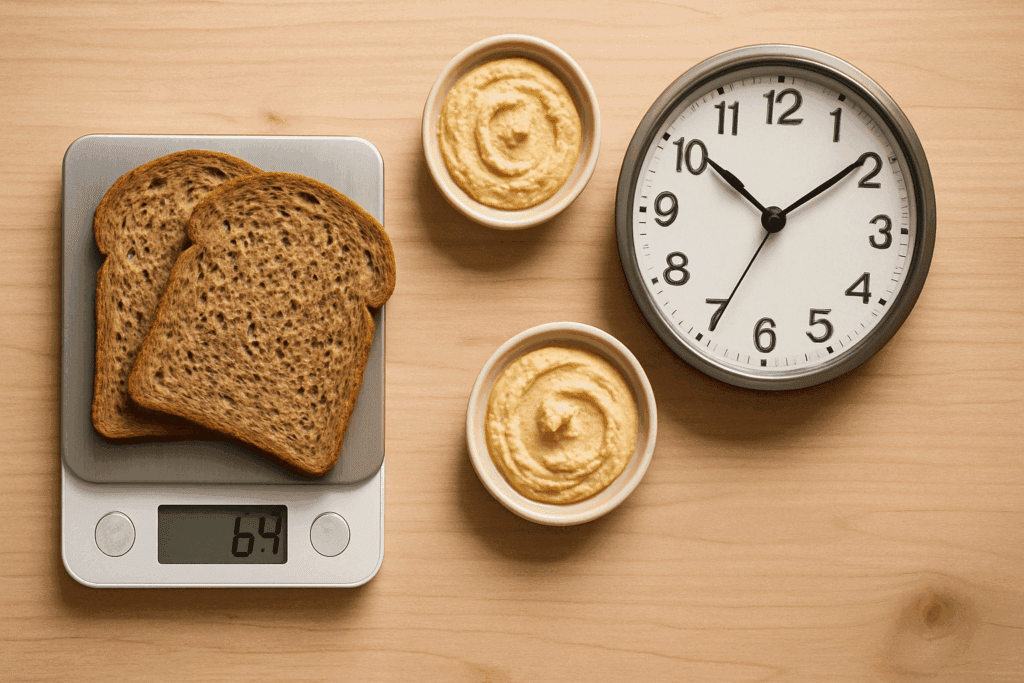
Bread Timing, Frequency, and Portion Control
Even healthy bread can become problematic if consumed in excessive amounts. Portion control is essential, especially for those pursuing a calorie deficit. A common pitfall in fat loss efforts is underestimating the calorie contribution of condiments, spreads, and extras that accompany bread-based meals.
Mindful eating encourages awareness of not just what we eat, but how we eat. Slowing down during meals, avoiding distractions, and tuning into hunger and fullness cues can all help prevent overeating. Enjoying a slice or two of whole grain bread as part of a balanced meal is very different from mindlessly consuming half a loaf with butter in front of the television.
Meal timing may also play a role in how the body processes and utilizes carbohydrates. Some research suggests that consuming higher-carb foods earlier in the day, when insulin sensitivity is naturally higher, may be more favorable for fat loss. However, the effect size is small, and overall energy balance remains the most important factor. There’s no need to fear bread at night, but aligning higher-carb meals with physical activity may support weight goals more effectively.

Bread Cravings and Emotional Eating: A Deeper Look
For many people, bread is more than just a food—it’s a source of comfort, tradition, and emotional fulfillment. Cravings for bread often arise not from physiological hunger but from emotional triggers, stress, or habit. Understanding the psychology behind bread cravings can empower healthier choices without unnecessary guilt.
Labeling bread as “bad” can backfire by creating a scarcity mindset, which fuels binge behavior. Instead, allowing bread in moderation, especially nutrient-dense versions, can reduce psychological resistance and help regulate intake naturally. This is particularly relevant for those who have a history of yo-yo dieting or disordered eating patterns.
Practicing mindful eating, managing stress without food, and including balanced macronutrients at each meal can reduce bread cravings and support more stable energy throughout the day. In this light, the answer to “Is bread bad when losing fat?” may actually lie in the emotional relationship we have with food, rather than in bread itself.
The Verdict: Can Bread Be Part of a Fat Loss Diet?
After examining the evidence, it’s clear that bread can be compatible with fat loss goals when chosen and consumed mindfully. The notion that bread and fat loss are mutually exclusive is outdated and overly simplistic. Instead, questions such as “Is wholemeal bread good for weight loss?” or “Is whole grain bread good for losing weight?” reflect a more nuanced and informed approach.
Whole grain and whole wheat breads, rich in fiber and nutrients, can enhance satiety, improve digestion, and support metabolic health. On the other hand, ultra-processed breads made with refined flour, sugars, and additives may contribute to weight gain, especially when overconsumed. It’s not about eliminating bread, but about upgrading your choices and being intentional about portion size and context.
Ultimately, fat loss is driven by sustainable habits, not by demonizing individual foods. Bread can be a delicious, satisfying, and nutrient-rich component of a healthy eating pattern—if you choose the right kind and eat it in a balanced way.
Frequently Asked Questions (FAQ): Bread and Fat Loss
1. Can eating bread every day slow down your fat loss progress?
Eating bread daily doesn’t inherently hinder fat loss, as long as it’s included within a calorie-controlled, nutrient-dense diet. The belief that bread and fat loss are incompatible often stems from misunderstandings about carbohydrate metabolism. Choosing high-fiber options like whole grain or wholemeal bread supports fullness and may reduce overall calorie intake throughout the day. Rather than asking, “Is bread bad when losing fat?” a more effective question might be, “Am I managing portions and pairing bread with protein, fiber, and healthy fats?” Consistency in overall dietary patterns, not bread consumption in isolation, determines whether you’ll lose or retain fat.
2. Why do some people gain weight when they eat meat and bread together?
The concern around “does meat and bread make you fat or just sitting?” often relates to portion size, food quality, and lifestyle. Highly processed meats, such as salami or bacon, paired with refined bread, contribute significant calories, sodium, and saturated fat. When meals like this are consumed frequently, especially in sedentary individuals, weight gain becomes more likely. It’s not the pairing itself but the type and preparation of each food that matters. Combining lean proteins with whole grain bread while maintaining physical activity can actually enhance satiety and support fat loss.
3. Is wholemeal bread good for weight loss even if it has carbs?
Yes, wholemeal bread is good for weight loss, particularly because it retains the fiber-rich bran and germ that help stabilize blood sugar and prolong fullness. While carbohydrates are often blamed in diet culture, complex carbs from wholemeal bread offer benefits that support weight management. Unlike refined bread, wholemeal bread helps moderate insulin response and can be part of a healthy diet that supports fat loss. People who ask, “Is wholemeal bread good for weight loss?” should understand that not all carbs are equal—it’s the quality and context of the carb that counts. When paired with balanced meals and eaten mindfully, wholemeal bread contributes more to health than harm.
4. Does bread make you fat if it’s eaten late at night?
The timing of bread consumption has less impact than total caloric intake and dietary habits throughout the day. While some suggest that eating carbs at night contributes to weight gain, there’s no consistent evidence that bread eaten in the evening causes fat storage unless it pushes you into a calorie surplus. The real issue is often what accompanies the bread—late-night snacking on high-fat spreads or excess portions tends to be the problem. So, when pondering, “Does bread make you fat?” consider how, not just when, it’s eaten. Evening meals with whole wheat bread, lean protein, and vegetables can still align with fat loss goals.
5. What are some unexpected benefits of including whole grain bread while losing fat?
Whole grain bread provides more than just energy; it contributes to gut health through prebiotic fibers that nourish beneficial bacteria. These gut microbes can influence appetite regulation, inflammation, and even fat metabolism. Moreover, people often find that adding whole grain bread to a meal allows for greater flexibility and enjoyment in their eating plan, increasing long-term adherence. So if you’re asking, “Is whole grain bread good for weight loss?” the answer is yes—not just for its fiber content, but also for its role in dietary satisfaction. When people enjoy their meals, they are more likely to stick to their health goals.
6. Can cutting out bread completely help you lose fat faster?
Eliminating bread might lead to quick water weight loss initially, especially when cutting carbs drastically, but this isn’t the same as losing body fat. While removing bread may reduce calorie intake temporarily, it can also create nutritional gaps and increase cravings over time. Sustainable fat loss comes from building a flexible, balanced diet—not rigidly removing foods like bread. Instead of asking, “Is bread bad when losing fat?” consider whether your overall food environment supports your goals. Learning to include bread in moderation is often more sustainable than banning it outright.
7. Are there psychological risks associated with demonizing bread during weight loss?
Absolutely. When bread is labeled as “bad,” it can trigger cycles of guilt, restriction, and eventual overconsumption. This kind of thinking fuels an all-or-nothing mindset that undermines long-term success. Demonizing food groups—especially culturally significant staples like bread—can also increase stress around eating and reduce dietary quality overall. Questions like “Does bread make you fat?” often reflect fear rather than science. Cultivating a healthy relationship with bread and all foods supports better emotional and metabolic outcomes.
8. Does bread type influence post-meal calorie burn or metabolism?
Interestingly, some research indicates that whole grain bread may lead to a slightly higher thermic effect—the energy required to digest and metabolize food—compared to refined bread. This is because fiber-rich foods take more effort for the body to process. Additionally, the slower digestion of whole grains can help regulate blood sugar and support appetite control over several hours. So when evaluating “bread and fat loss,” it’s worth noting that not all bread has the same metabolic effect. Choosing bread made from whole grains may give your metabolism a slight advantage.
9. Is whole wheat bread good for weight loss if you’re sedentary most of the day?
Even in sedentary individuals, whole wheat bread can still be part of a weight-conscious diet—especially when portioned appropriately and combined with other nutrient-dense foods. People often wonder, “Is whole wheat bread good for losing weight?” assuming that inactivity alone makes any carbohydrate off-limits. While physical activity certainly enhances weight loss efforts, dietary quality matters just as much. Whole wheat bread offers sustained energy and satiety, helping reduce the tendency to snack on empty calories. Even without high levels of activity, mindful bread consumption can support healthy weight management.
10. How can people overcome fear of bread when trying to lose fat?
Overcoming the fear that bread will derail fat loss starts with education and experience. Understanding that whole grain and wholemeal varieties offer nutritional benefits reframes the conversation away from fear and toward informed choice. Repeating affirmations such as “Bread doesn’t make me fat—habits do” can help shift mindset. Planning balanced meals that include small portions of whole wheat bread empowers people to eat without guilt and build dietary confidence. As you redefine your relationship with food, the question shifts from “Will bread make you fat?” to “How can I include bread in a way that supports my long-term goals?”
Conclusion: What Bread Teaches Us About Fat Loss, Balance, and Healthier Living
The journey to sustainable fat loss is as much about mindset as it is about macronutrients. Asking “Is bread bad when losing fat?” opens the door to deeper questions about how we think about food, how we respond to dietary trends, and how we define health in our daily lives. Bread, in all its varied forms, becomes a symbol of something larger—a choice that reflects our ability to combine pleasure with purpose.
When framed within the context of whole foods, portion awareness, and balanced living, bread doesn’t have to be feared. It can be embraced as part of a broader strategy for long-term health. Whether you’re selecting a slice of whole grain toast to go with your breakfast, packing a wholemeal sandwich for lunch, or enjoying a small piece of rustic bread with dinner, it’s not the bread that determines the outcome—it’s the pattern of choices that surround it.
Let’s move beyond restrictive rules and toward a model of eating that values nourishment, flexibility, and trust in the body’s wisdom. After all, the real secret to fat loss isn’t about cutting carbs—it’s about cultivating consistency, compassion, and a long-term relationship with food that works for you.
Was this article helpful? Don’t let it stop with you. Share it right now with someone who needs to see it—whether it’s a friend, a colleague, or your whole network. And if staying ahead on this topic matters to you, subscribe to this publication for the most up-to-date information. You’ll get the latest insights delivered straight to you—no searching, no missing out.
Further Reading:
Is Bread Bad for You? Nutrition Facts and More
11 Foods to Avoid When Trying to Lose Weight
What Happens to Your Body When You Eat Bread Every Day
Disclaimer
The information contained in this article is provided for general informational purposes only and is not intended to serve as medical, legal, or professional advice. While NewsHealthWatch strives to present accurate, up-to-date, and reliable content, no warranty or guarantee, expressed or implied, is made regarding the completeness, accuracy, or adequacy of the information provided. Readers are strongly advised to seek the guidance of a qualified healthcare provider or other relevant professionals before acting on any information contained in this article. NewsHealthWatch, its authors, editors, and contributors expressly disclaim any liability for any damages, losses, or consequences arising directly or indirectly from the use, interpretation, or reliance on any information presented herein. The views and opinions expressed in this article are those of the author(s) and do not necessarily reflect the official policies or positions of NewsHealthWatch.

